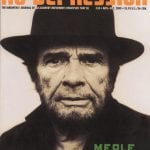Special Consensus – Bluegrass Turns Silver
Back in 1973, when banjo picker Greg Cahill got together with fellow grad students at the University of Chicago to play music, it was strictly for fun. This much is evident from the various names the informal band adopted, including Buffalo Chip String Band and Cook County Doo Dah Boys.
“We played all kinds of music back then,” says Cahill, “folk, swing, rock ‘n’ roll, not just bluegrass, even though we did have bluegrass instrumentation.” Things took a more serious turn in 1975: The band changed its name to the Special Consensus Bluegrass Band, and Cahill and bass player Marc Edelstein decided to play music on a full-time basis, for as long as they could earn enough to pay the bills.
Sitting with Cahill at a picnic table in Wilmette, Illinois, before a free concert sponsored by the local arts council, it’s obvious that the “paying the bills” part of the equation is still an open question, as evidenced by the bag of groceries dropped off by an aunt who lives nearby. “Yeah, we still depend on friends to feed us and give us a couch to sleep on sometimes,” Cahill chuckles.
But a quarter-century later, Cahill is still at it, logging around 200 shows and 70,000 miles a year. About half of those shows are in the Chicago area, but the other half could be anywhere on the globe. Special Consensus is a mainstay at festivals throughout North America and Europe.
“In Europe, they aren’t called bluegrass festivals, they’re just music festivals,” Cahill says. “We could be scheduled between a blues band and a rock ‘n’ roll band, and I’ll just think that they’re going to hate us with our acoustic instruments. But we always seem to be a hit with audiences all over.”
Some of Cahill’s fondest memories are of a 1994 tour of South America. “We played for people who never heard anything like bluegrass music — and they loved it! We’d spend an hour and a half after a concert answering questions and signing autographs.”
The desire to spread the bluegrass music gospel has earned Cahill his current position as chair of the International Bluegrass Music Association’s Bluegrass In The Schools Committee. “A position I was drafted for,” he laughs.
His efforts toward bluegrass in education began in the early ’80s, when a teacher friend of Cahill’s brought the band into his classroom to play for his students. In 1984 the band created the Traditional American Music Program to introduce students to bluegrass music. The program includes a presentation adaptable for students from preschool to college. A typical Special Consensus gig often includes presentations at a couple local schools before an evening concert. Festival dates usually include a show on the children’s stage.
Cahill has been the sole constant in Special Consensus, with over 30 pickers revolving through the band over the years. The rigors of the road and a desire to remain close to family are reasons why most players leave, but more then a few have gone on to make a career in music. “Chris Jones has a studio in Nashville, and Robbie Fulks is a big star now,” says Cahill, beaming like a proud papa. “We finished up a show in Fort Collins the other day, got back to the hotel and turned on the TV, and there he was on Conan O’Brien.”
The player with the longest tenure in the current lineup (besides Cahill) is guitarist Chris Walz, a member since 1997. A professional actor as well as a musician, Walz serves as the frontman in concert, telling jokes and singing most of the lead vocals. He’s also the band’s most prolific songwriter.
Bassist/tenor vocalist Tim Dishman, the newest member, has been a fixture on the Midwest bluegrass scene since he was 15. Cahill has known teenage mandolinist Josh Williams since he was 9; since then Williams has won banjo, guitar and mandolin championships in five states.
The band’s new Pinecastle Records release, Special Consensus 25th Anniversary, includes twelve tracks from the current lineup and eight from earlier lineups culled from previous discs. Among the highlights is a bluegrass cover of Sam Cooke’s “That’s Heaven To Me” featuring Fulks on guitar and lead vocal. The photo collage on the cover features a picture of Fulks sporting a haircut considerably longer than his current crop.
Cahill talks about cutting the band’s schedule back to 150 dates a year; at this point, he could afford to spend more time at home teaching at the Old Town School of Folk Music and being the banjo player of choice on Chicago’s busy jingle music scene. But he sees big things on the horizon for the music he loves.
“People are looking for something different in music, and acoustic music is being reconsidered as an alternative. Interest in things like world music and jazz only benefits bluegrass,” he says.
But judging from the big grin that seems perpetually plastered on his face, it seems the biggest reason that Cahill keeps going is that he’s just having too much fun to quit.




